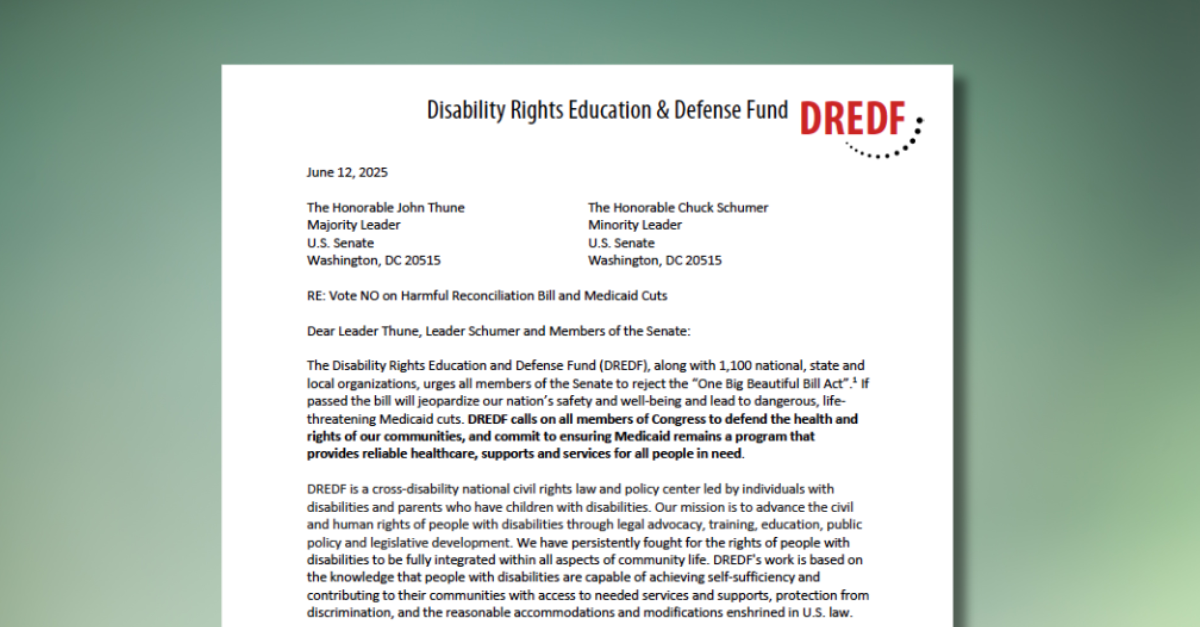

Healthcare Access
People with disabilities experience a range of physical, programmatic, and systemic barriers when they try to access healthcare. We work out ways to apply existing laws and principles of disability non-discrimination in the complicated context of how health care services are delivered in this country.
Medicaid is Under Attack
Elected officials in Washington, D.C., are talking about cutting Medicaid. Tell Congress that access to Medicaid is a life or death issue for millions of people across the U.S..

Why Medicaid Matters for People with Disabilities
In 2010, the Affordable Care Act (ACA) expanded Medicaid eligibility for seniors and people with disabilities. Medicaid services provide a critical path to both healthcare and long-term care, including home and community-based services. As of 2025, 80 million low income children, older adults, and people with disabilities in the United States depend on Medicaid to meet healthcare needs. Medicaid services also enable some people with disabilities live independently in their communities, work, and pay taxes. Watch Four Videos Show Why Medicaid-Funded Home and Community Based Services Matter →
Our Healthcare Stories Campaign
Healthcare Stories are free, short videos that illustrate the obstacles and barriers that still stand in the way of getting appropriate health care for many people with disabilities. The project began collecting stories in 2011.


